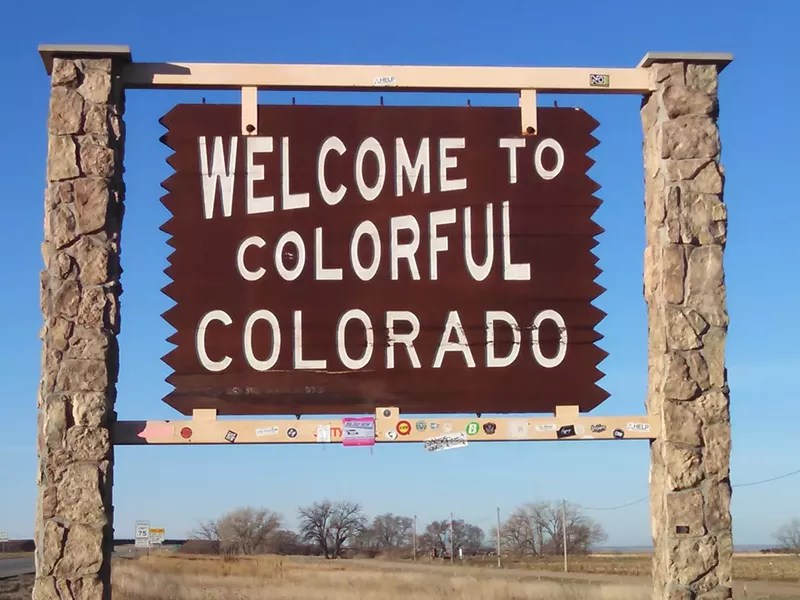
Pixabay

Audio By Carbonatix
In response to “Complaints From a Concerned Coloradan“:
Colorado has, for the past 100-plus years, always been a state where the majority of people who live here have been born outside of Colorado. We are not the only state home to more migrants than “natives,” but darned if there’s a better state. If you, dear reader, are a member of an invasive species like I am, welcome home. You’re among friends here. (And as a Hoosier, sorry about Mike Pence – there’s a reason many of us leave the Midwest to come here.)
Our beautiful Centennial State is becoming a gentrified, class-divided mess that is entirely the predictable result of choices made over decades. That sucks, but within the suck there is opportunity. The beauty of self-inflicted problems like ours is that we can solve those by making different choices.
Where did we go wrong with our choices? We moved away from our history, and bought into the idea that our cities and lives could and should be planned down to microscopic levels of detail. That level of planning is anathema to charm, character, history and diversity.
The most-loved of our cities, big and small, have been where strivers found opportunity, and where someone could change their little corner of the world as they needed to. The funky and weird mountain towns happened because there weren’t thousands of pages of rules dictating exactly what they must be. The towns are charming now, but they were once just a strange mishmash of whatever people could get away with. The Wild West refers to building codes as much as it does to outlaws.
Returning to our history doesn’t mean going back to a lawless world with unnecessary danger. We can blend the important lessons we’ve learned with an acceptance that the real world can’t be planned like a city in a video game.
It’s up to you to say what values and experiences you embrace in our history and our state. But if you love Ned’s charm, the tragically-shrinking diner scene in Denver, the mountains or having a ski season that lasts more than three weeks, the best way to preserve any and all of those is, conveniently, to allow for more homes where we already have some homes.
The rent is too damn high because it’s illegal to build enough housing where there’s currently housing and the infrastructure to support housing, all restricted via zoning laws. It’s generally unfeasible to build affordable housing or apartments smaller than a city block because of unnecessarily specific rules like minimum parking requirements and how many staircases a building must have.
The idea that “building more housing keeps prices lower than they would be otherwise” is uncontroversial in the academic community, much like “humans are causing catastrophic climate change.” That idea, however, is still just as controversial in the popular discourse as, well, climate change. Yes, even “luxury”-branded housing helps. Rent might still go up, but not as much for not as long.
If you want proof-positive that more housing in cities works, look towards Minneapolis, the city that beat inflation. If you want an example that not building housing pours gasoline on the fire of displacement, look towards San Francisco. “Don’t California My Colorado” is a slogan I take to heart, and the easiest way to avoid their mistakes is to build housing in our cities.
Compare this approach to the status quo, which meticulously plans for parking minimums at bars, deliberately-engineered traffic deaths, and jumping through extensive hoops to tear down burned rubble. Worst of all, our current meticulous planning sure doesn’t seem to be making anyone happy. Might as well try something different.
We have a lot of work to do. But we sure as hell can do it.
Chris Miller, probably just like you, is a transplant who’d love others to experience the best of Colorado for generations to come. He built a house in his backyard.
On weekends, westword.com publishes essays and commentaries on matters of interest to the Denver community; the opinions are those of the authors, not Westword. Have a piece you’d like to share? Email editorial@westword.com, where you can also comment on this essay.